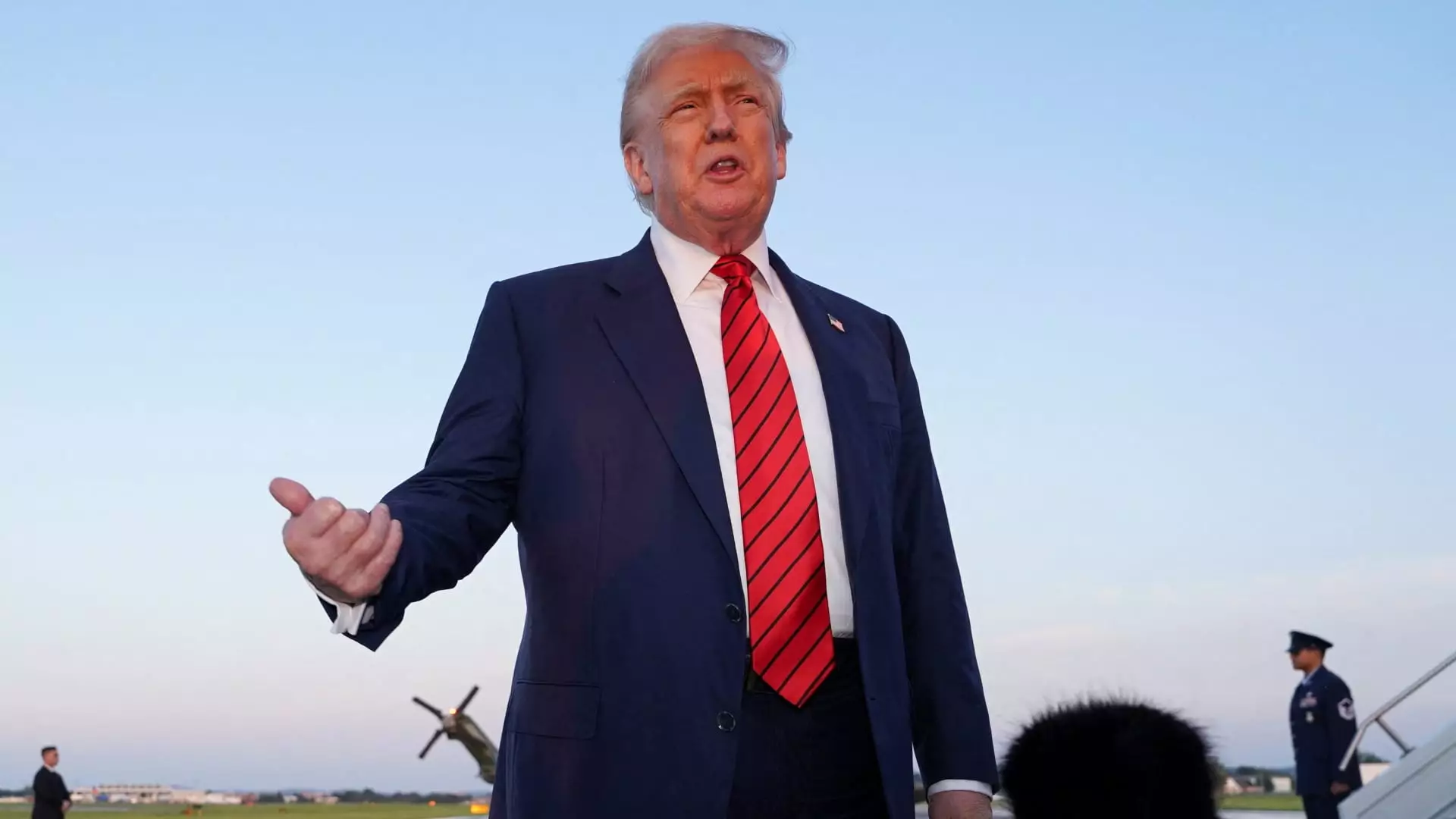The recent push by the Trump administration to impose steep tariffs on imported pharmaceuticals raises fundamental questions about the true motivation behind such policies. While the narrative of protecting national security appears compelling on the surface—after all, we depend on medications for health—this rationale often masks a broader, more troubling aim: economic nationalism disguised as strategic necessity. Declaring that tariffs could eventually hit 250%, Trump’s brinkmanship is primarily a bargaining chip, not a well-conceived plan to bolster domestic manufacturing. It’s easy to fall prey to simplistic narratives of ‘saving American jobs,’ but in reality, these policies threaten to destabilize the very foundation of healthcare systems that millions rely upon daily.
The Disruption of Patient Care and Innovation
Few industries are as delicate as pharmaceuticals, where supply chains are intricately woven and technological advancements are fragile. The threat of tariffs, especially at such astronomical levels, risks severe supply disruptions that could leave patients in limbo. Rising costs stemming from tariffs would inevitably be passed onto consumers—those with chronic illnesses and vulnerable populations will bear the brunt of these misguided protections. Furthermore, the industry’s capacity for innovation depends on stable investment streams. When tariffs threaten to inflate costs and introduce unpredictability, research and development suffer significantly. Innovation is crucial for discovering future treatments, yet the current approach jeopardizes long-term progress for short-term political points.
The Dilemma of U.S. Manufacturing Revival
The administration’s justification for imposing tariffs hinges on reversing the decline of domestic pharmaceutical manufacturing—a saga rooted in decades of globalization and economic shifts. While the desire to bring manufacturing home sounds noble, the actual impact remains dubious. Many pharmaceutical production processes are complex, heavily reliant on a global supply chain of raw materials and specialized equipment. Simply imposing tariffs without structural reforms or significant incentives neglects the realities of modern medicine production. The plan to “encourage” companies like Eli Lilly or Johnson & Johnson to relocate operations solely through tariffs borders on wishful thinking, risking economic inefficiency and a decline in U.S. competitiveness further.
The Politicization of Drug Pricing Policies
Parallel to the tariff threats, Trump’s administration has attempted to intervene directly in drug pricing, notably through executive orders like the “most favored nation” policy. Tying U.S. drug prices to those in other developed nations sounds pragmatic but raises serious practical and ethical concerns. This policy, though periodically invoked, remains more of an aggressive rhetoric than a fully realized strategy—yet it signals a clear intent to interfere with market mechanisms. While lowering drug prices is a laudable goal, the uncoordinated and politicized approach risks unintended consequences: supply shortages, stifled innovation, and strained relationships with pharmaceutical companies that rely on fair returns for their R&D investments.
Are These Policies Remedy or Reflective of Concealed Agendas?
There is an undeniable pattern of using protectionist rhetoric to mask deeper economic ambitions. The tariffs threaten to prioritize short-term political gains—appeasing certain constituencies or delivering populist messaging—over the stability of healthcare and innovation ecosystems. By presenting the push as a matter of national security, the administration sidesteps real debates about global trade, pharmaceutical pricing, and healthcare reform. The problem, however, is that these policies not only threaten economic efficiency but also risk compromising patient care—a sacrifice that cannot and should not be justified by superficial notions of sovereignty or patriotism.
The Future of U.S. Healthcare in Question
Ultimately, the policies reflected in this strategic muddle threaten to deepen existing fractures within the U.S. healthcare system. Increasing costs, supply chain uncertainties, and regulatory unpredictability jeopardize the foundational principle of medicine: to serve the health needs of the people. The ostensible goal of safeguarding American manufacturing and reducing drug prices is laudable, but the flawed execution reveals a disconnect between political rhetoric and economic reality. The current approach seems more like a gamble with public health, rather than a strategic plan to build a resilient, innovative, and affordable pharmaceutical sector that truly serves the interests of the American public.


Leave a Reply